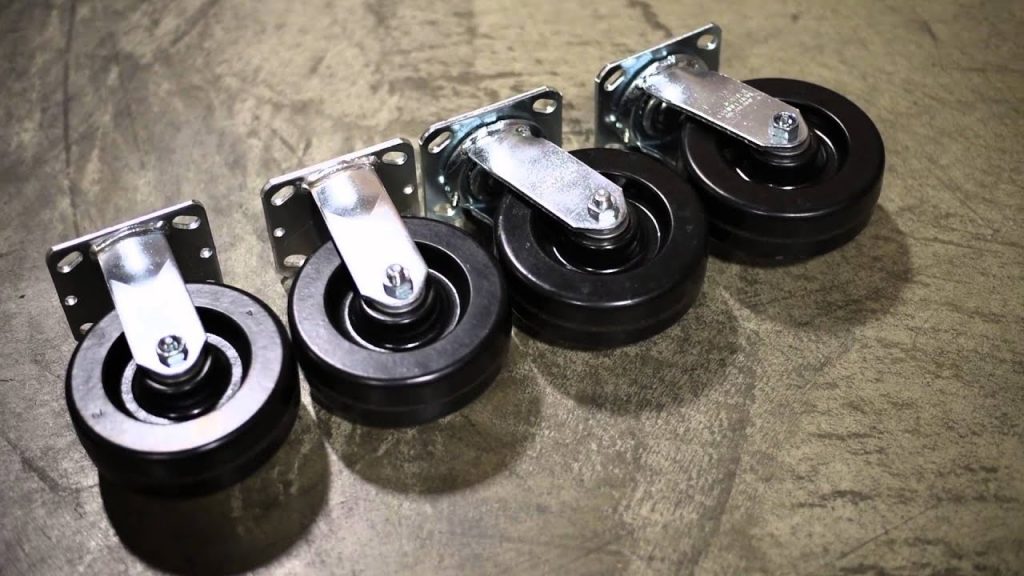With so many options for caster wheels, it can be hard to choose the right one for your application. There are many different materials used in the construction of caster wheels from phenolic to steel to nylon. The material, size and tread measurements all determine how much weight the wheel can support. Wheel material determines how it interacts with the flooring as well. Phenolic wheels are an inexpensive option but come with its own strengths and weaknesses. Consider these facts before purchasing the popular wheels.
Hard Material
Phenolic caster wheels use a mixture of phenolic resin and macerated denim. The compound is as tough as a bowling ball. Due to their hard tread shell, debris can attach to the wheel during movement. As the wheelsmove, the debris can cause damage to the floor. The phenolic material is best used on concrete floors to avoid damage. Watch for debris that can leave behind imperfections such as cuts and scratches. Debris filled wheels may make undesirable noises in the building during movement. The wheels may leave black marks on certain floors.

Chemical-Resisting Properties
The phenolic resin mixture prevents some liquids along with grease and oil from adhering to the surface. The material works perfectly as long as the outer shell stays intact. When the outer shell obtains cracks, liquids can penetrate the material and break the material down.
Load Capacity
Despite being lightweight, the phenolic wheel can support a lot of weight. Manufactured at a high temperature and pressure, phenolic wheels have the shape and strength to handle a larger load capacity than other materials. A cracked outer shell makes the wheel vulnerable to water damage. A warped wheel isn’t able to properly distribute weight making the wheels more difficult to move.
Life Cost
The wheels are a low cost, budget-friendly option. The economical wheels are ideal for stationary and infrequent use. More active use and certain environments can cause the wheels to deteriorate and need replacement. The shorter life cycle may mean spending more money on wheels over the life of the object versus other upfront expensive options. The cost of the wheels is largely determined on the use of the wheels.
The economical caster wheels work fantastically for infrequent use. The wheels hold up heavy stationary loads with ease. Move them easily over clean, flat and solid surfaces such as concrete. Depending on what you plan to use the caster wheels for, the phenolic wheel may be the perfect wheel.